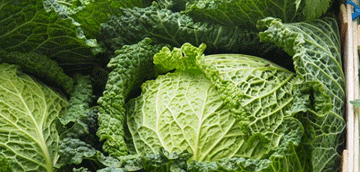The 2024 harvest season in Schleswig-Holstein has been marked by an abundance of rainfall, leaving farmers with mixed results for their crops. According to the Schleswig-Holstein Farmers’ Association, yields for key crops such as winter wheat and rapeseed have been particularly disappointing this year. These two crops, which typically perform well in the region, have not reached their usual peak production levels, with farmers facing challenges in managing the wet conditions.
The Impact of Excessive Rain
The heavy rains this season have not only delayed planting and harvesting but also made fields difficult to work with. Some farmers were forced to leave portions of their fields unharvested, and in some cases, entire areas were plowed under. “We’ve seen fewer harvests in recent years due to weather unpredictability,” stated a spokesperson from the association. The wet conditions limited the number of dry days available to harvest the crops, forcing farmers to rush when the weather allowed. However, some farms opted to forgo harvest altogether, particularly in fields that were simply too wet to access with machinery.
Adapting to a Changing Climate
Looking ahead, many farmers are exploring alternative crop varieties that are more resilient to extreme weather patterns. Some are considering moving away from traditional grains and rapeseed in favor of crops like field beans or summer vegetables, which may fare better in fluctuating climates. However, experts caution that these adaptations alone may not be enough to fully mitigate the effects of climate change, as extreme weather events become more frequent and intense.
Challenges with Pest Resistance and Crop Protection
Another pressing concern for farmers is the growing issue of pest resistance. With a push towards using fewer chemical pesticides, pests are developing resistance, making them harder to control. This shift in pest management practices has led to an increase in crop damage, which directly impacts the quality and yield of the harvest. Farmers are now facing the dual challenge of managing the climate’s erratic behavior and dealing with an evolving pest landscape, both of which are reducing their profits.
Kohl (Cabbage) Harvest in Dithmarschen
While some crops have struggled, others, like cabbage, are thriving. The district of Dithmarschen, which boasts Europe’s largest contiguous cabbage-growing area (about 3,000 hectares), is preparing for its traditional cabbage harvest. Farmers in the region are optimistic that this crop will fare well, despite the ongoing weather challenges, offering a rare success in an otherwise difficult year for agriculture in the region.
This year’s harvest in Schleswig-Holstein highlights the growing difficulties that farmers face as they navigate the impacts of climate change. The heavy rainfall has led to poor yields for many traditional crops, and challenges like pest resistance continue to strain farming operations. For the future, farmers must consider shifting to more adaptable crops and investing in sustainable farming practices to ensure long-term viability. Additionally, addressing the growing pest resistance issue and improving crop protection methods will be crucial in stabilizing future harvests.































